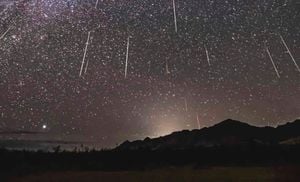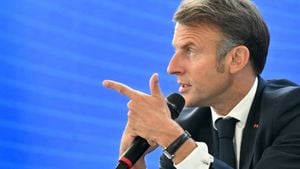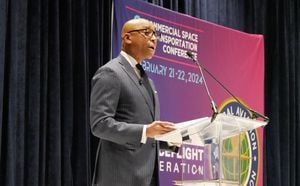A prominent human rights attorney, Claudio Grossman, has resigned from his special advisory position at the International Criminal Court (ICC) amid frustrations over the court's perceived impotence against human rights abuses committed by Venezuelan officials. Appointed by ICC Prosecutor Karim Khan, Grossman revealed his concerns about the court's failure to indict members of President Nicolás Maduro's administration for crimes against humanity, which he views as a betrayal to the victims of the Venezuelan crisis.
Since his advisory role began in 2021, Grossman has had direct insights on the deteriorated human rights climate within Venezuela. His departure from the ICC not only highlights individual discontent but also brings to the fore the broader criticisms aimed at the court concerning its delayed responses and lack of action concerning Venezuela. "I can no longer justify the choice not to take correspondingly serious action against the perpetrators of the grave violations," he articulated sharply, emphasizing the ethical dilemma he faced as he observed continued abuses without intervention from the institution he served.
The ICC has been under pressure to act decisively against the Venezuelan government, especially as atrocities mount against opposition leaders and protestors. Maduro’s regime has been accused of jailing, torturing, and even killing demonstrators who oppose his rule, and yet the ICC has yet to issue significant indictments. This stark immobility invites skepticism about the ICC's effectiveness, particularly when juxtaposed with its swifter actions concerning alleged war crimes by leaders outside of Latin America.
Much of Grossman’s frustration stems from a recognized pattern within the ICC—where action against nations like Venezuela seems disproportionately subdued compared to cases like those concerning Russia's Vladimir Putin and Israel's Benjamin Netanyahu. Critics argue this perceived double standard undermines the court's credibility and raises ethical questions about international justice.
Grossman’s dissatisfaction is exacerbated by the changing political climate. The International Criminal Court had promised technical assistance to local Venezuelan authorities to encourage them to address these violations. Despite repeated declarations of goodwill from Maduro’s administration to look inward and investigate these abuses, actual implementation remains nonexistent. This 'never-ending story' of promises without consequence has rendered the prosecutor’s office increasingly reluctant to step forward with indictments.
Behind the scenes, the judiciary and legal community's concerns deepen as they navigate the political intricacies complicate the already shaky ground of international law and justice. The call for concrete actions grows louder as international observers ponder the ethical ramifications of the ICC's continued inactivity. Venezuelan opposition leaders and human rights advocates alike have expressed their discontent, fearing the legitimacy of the ICC could become indistinguishable from the very authoritarianism it was established to combat.
The resignation of Grossman, revered for his work with the Inter-American Commission on Human Rights, signifies not just the struggle of one attorney, but the mounting discontent of those dedicated to combatting human rights abuses globally. Leaders and activists within Venezuela's opposition have called for greater international scrutiny, demanding the ICC prioritize cases against Maduro’s officials and pursue avenues ignored for far too long.
Recently, as the situation deteriorates, and as Maduro prepares for another presidential term marred by allegations of fraud, the urgency of Grossman's resignation hits on multiple levels. The broader international community watches as the impacts of this resignation ripple through discussions about justice, ethics, and the dire plight of Venezuelans.
Looking forward, it remains to be seen how the ICC will respond to Grossman's departure and the growing international outcry for justice. Advocates hope the resignation will catalyze movements within the court to confront the longstanding issues pertaining to accountability and prosecution of high-level officials who preside over human rights atrocities.
Maduro’s government retains significant control and manipulates narratives to sway public opinion. It has dismissed allegations of misconduct as projections of far-right conspiracies aiming to undermine Venezuela’s sovereignty. Grossman’s resignation, coupled with the ICC's continued silence, raises concerns over whether the right path to accountability remains within reach or if the wheels of justice are simply grinding to a halt.



